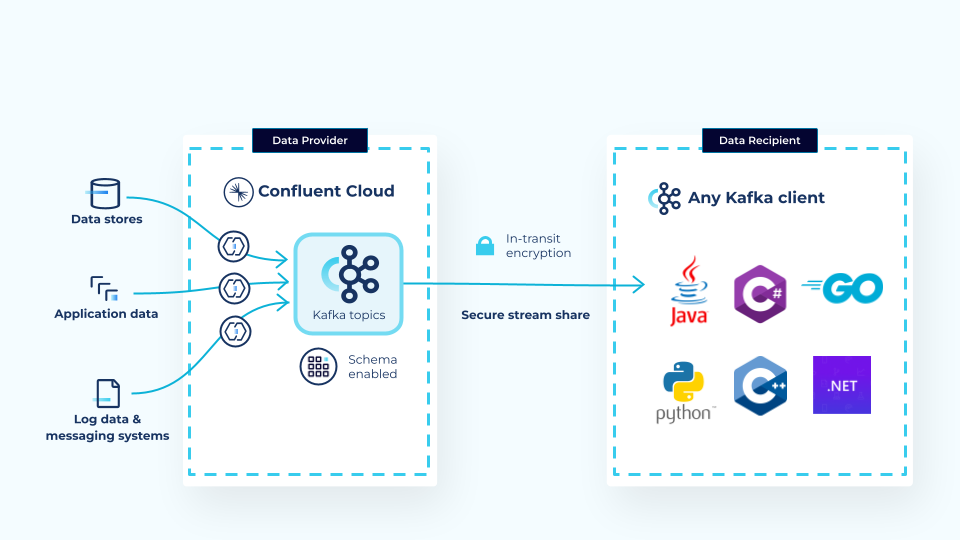Share Data with Stream Sharing from Confluent Cloud¶
Learn how to share data with users in other organizations.
What is Confluent Stream Sharing?¶
Confluent Stream Sharing is a feature that enables the exchange of data at the topic level between multiple, separate organizations.
More specifically, Stream Sharing:
- Enables Confluent Cloud users to share topics outside of their Confluent Cloud organization, between enterprises or business units.
- Allows consumers to stream shared topics. Newly-invited consumers can either log in to an existing Confluent Cloud organization, or create a new account and organization where they consume data directly using a Kafka client.
After a consumer accepts the invitation to the topic, they can access the data.
Limitations¶
Note the following limitations for the Stream Sharing feature:
- You can only share data by inviting users through email.
- There is no support for sharing via Cluster Linking. Data can only be shared directly from a provider’s cluster.
- You are limited on the amount of data that can be shared. Currently the limit is 10 MB per second, per share. If you need this limit adjusted, contact your Confluent representative.
- To use the CLI for Stream Sharing, you must have CLI v3. For more information, see: Migrate to Confluent CLI v3
- Enterprise Kafka clusters do not support Stream Sharing.
- Basic, Standard, and Dedicated Kafka clusters support Stream Sharing. Stream Sharing does not support all private network options for Dedicated Kafka clusters.
- The following networking options are supported: Public internet, AWS PrivateLink, Azure Private Link, and Google Cloud Private Service Connect
- To share streams over a private endpoint, both data provider and data recipient must use the same cloud provider.
- Wildcard principals for topics apply to Stream Sharing data recipients. This means that authenticated Stream Sharing recipients have access to the shared topic and any additional topics where access is applied for all principals. For more information, see Wildcard principals.
